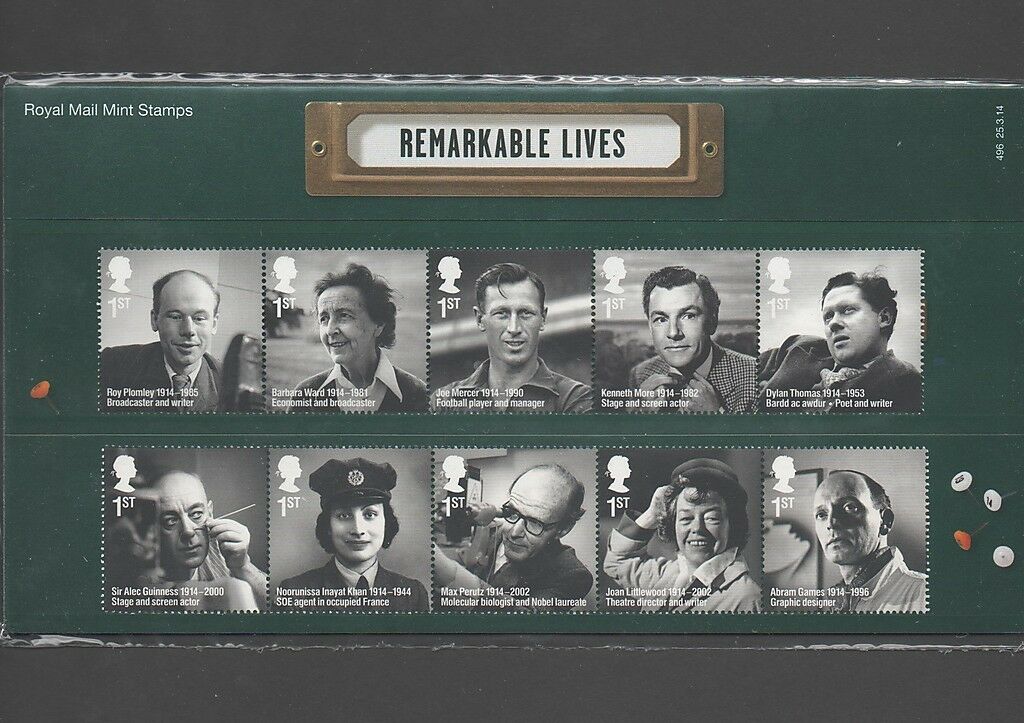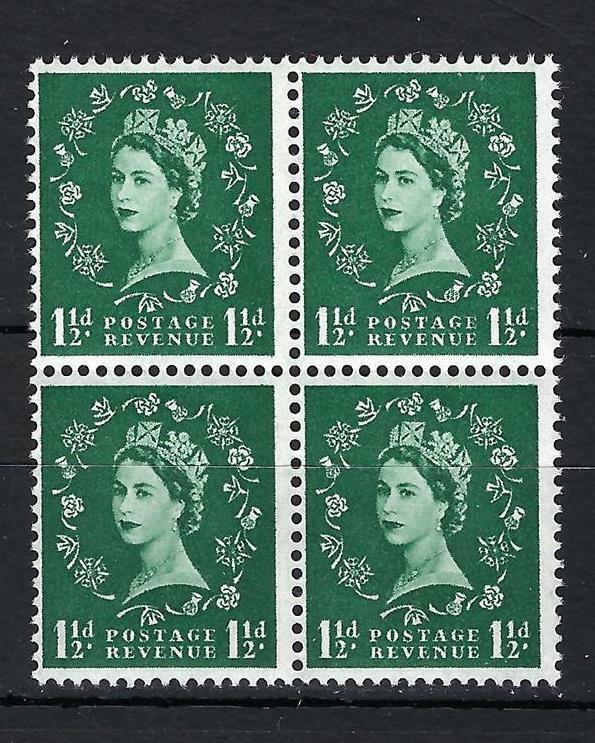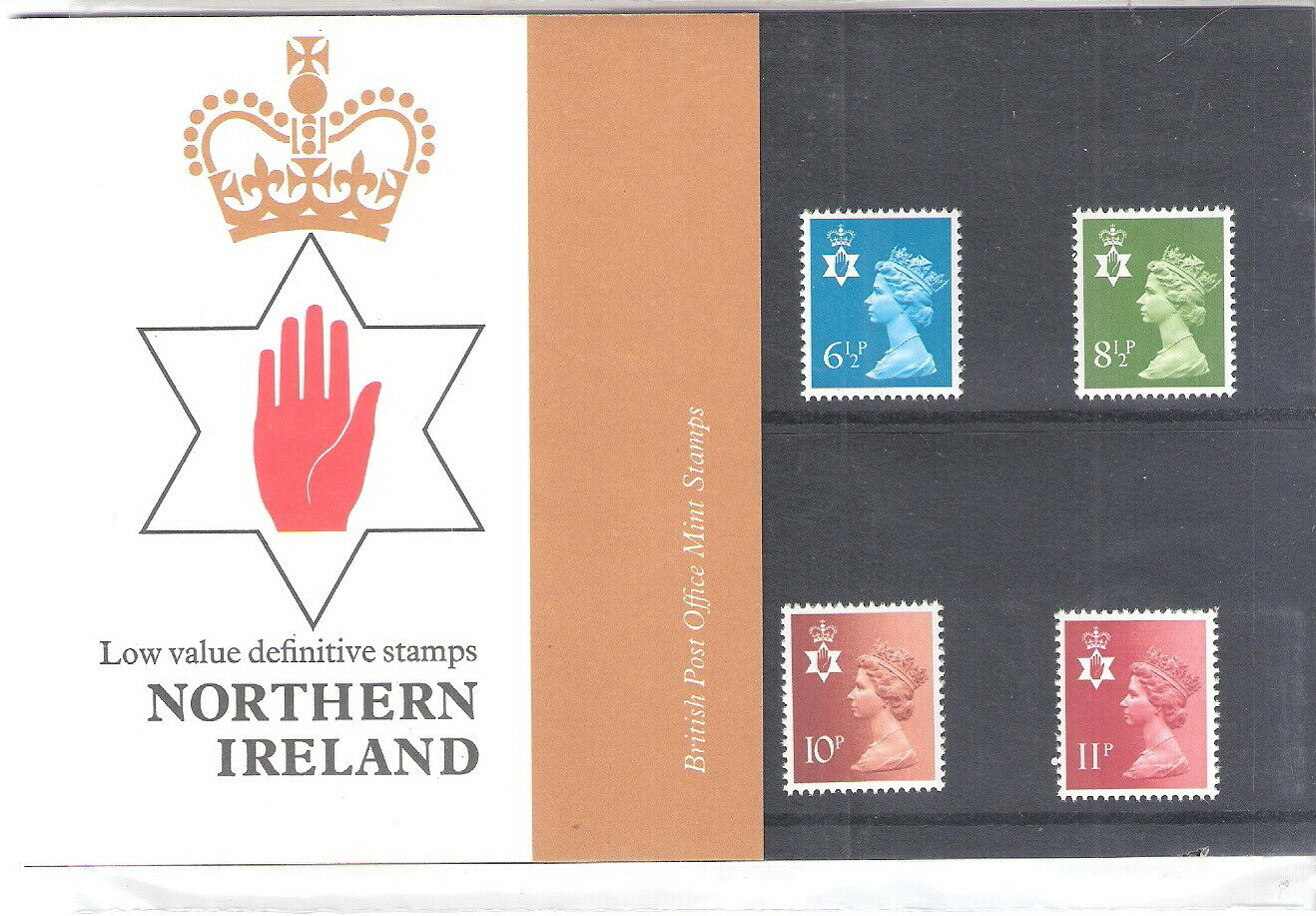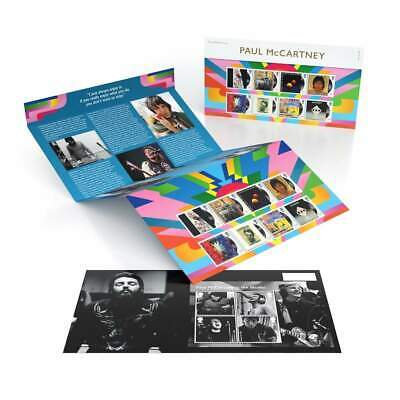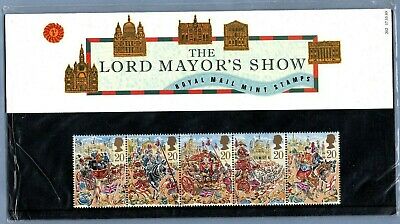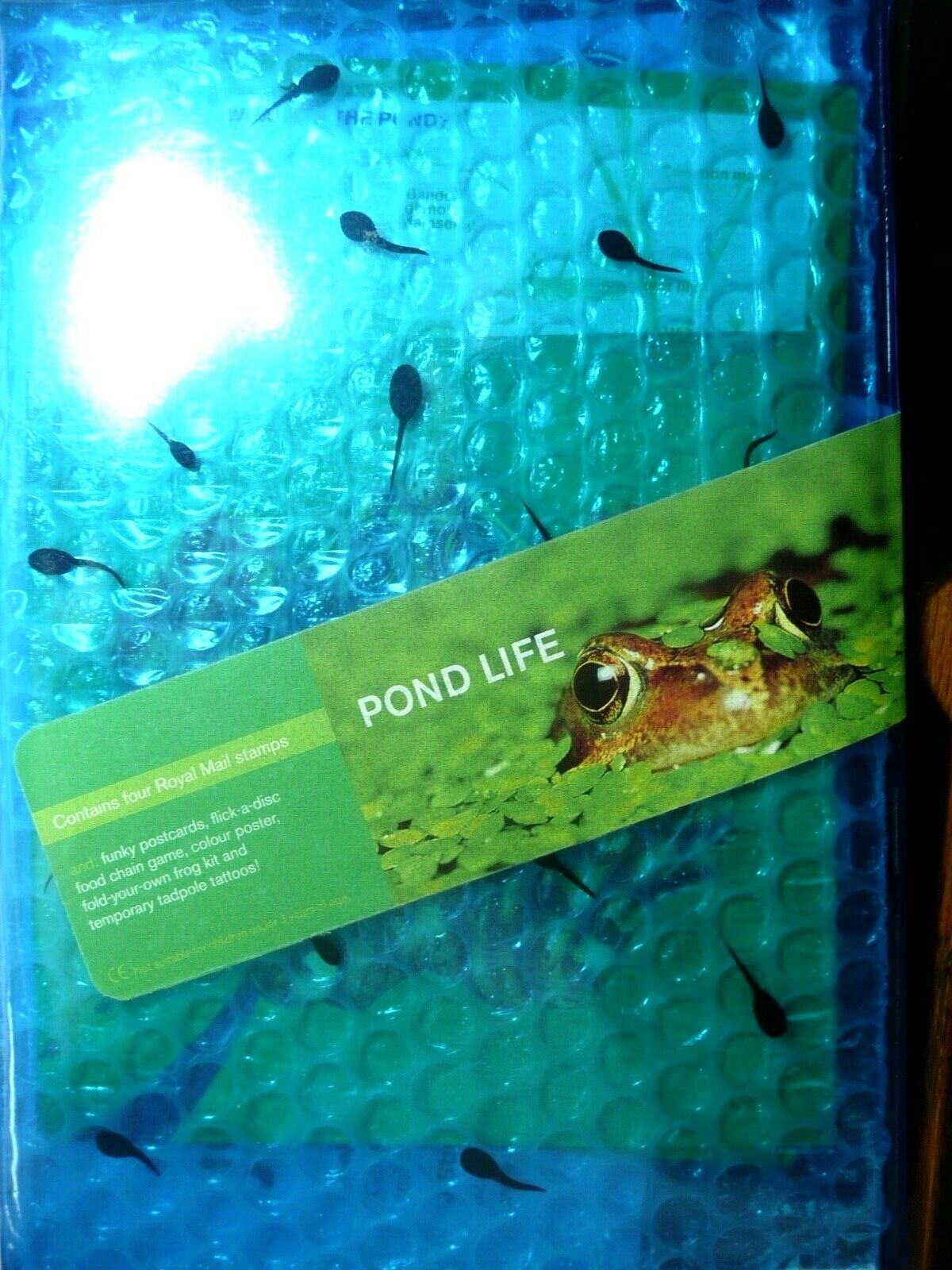-40%
GB 2014 REMARKABLE LIVES STAMP PRESENTATION PACK
$ 6.55
- Description
- Size Guide
Description
IF BUYING MORE THAN ONE ITEM PLEASE ASK FOR OR WAIT FOR ME TO SEND INVOICE FOR ALL ITEMSDATE OF ISSUE ON 25/03/2014
Remarkable Lives Presentation Pack
In this Presentation Pack Dr. David Lawrence gives a comprehensive overview of all ten Remarkable Lives, which is complemented and illustrated by a wide array of relevant archive images, from medals and posters to book covers and football cards. It also includes all ten Special Stamps.
Roy Plomley (1914-1985)
created Desert Island Discs, the UK’s longest running radio entertainment show, in 1942. The programme’s guest list has included royalty and five prime ministers. Plomley was born in Kingston, Surrey. He was awarded an OBE in 1975.
Barbara Ward (1914-1981)
helped to inspire the European Union and is known as a pioneer of global environmental issues. She was a powerful intellectual, a prolific writer and a passionate lecturer. Ward worked tirelessly to influence policy makers, persistently reminding them of the importance of economic relationships between established and emerging countries.
She was born at Heworth, Yorkshire, and studied in Paris and Oxford. In 1974 she was made a Dame of the British Empire and two years later became Baroness JACKSON of Lodsworth. Ward also received the Jawaharlal Nehru Award for International Understanding from the Indian government.
Joe Mercer (1914-1990)
epitomised sporting values of humble good humour and great skill throughout a 50-year career in football as player and manager. Born in the Wirral, the son of a professional footballer, he played for England, Everton and Arsenal, captaining the latter team in two FA Cup finals and two League championships.
After retiring from the pitch, Mercer managed Sheffield United, Aston Villa and Manchester City, leading City to victory in the FA Cup, European Cup Winners’ Cup and Football League Cup. Joe Mercer won three championship medals, an FA Cup winners’ medal, and five full and 22 wartime international caps.
He was Footballer of the Year in 1950 and awarded an OBE.
Kenneth More (1914-1982)
was one of the world’s most popular actors from the late 1950s through the 1970s. Born in Gerrards Cross, Buckinghamshire, and educated on the island of Jersey, he honed his ability to distil the characteristics of the Englishman.
He appeared in several highly regarded films – he was Second World War pilot Douglas Bader in Reach for the Sky – and television series including Doctor in the House and The Forsyte Saga.
Dylan Thomas (1914-1953)
In his short life, poet and writer Dylan Thomas made a unique contribution to modern literature. With rich imagination he crafted poems, prose and drama presenting universal visions of everyday lives. Thomas’s most well-known text is the radio drama Under Milk Wood and his poetry includes such acclaimed pieces as And Death Shall Have No Dominion and Do Not Go Gentle into That Good Night. Dylan Thomas was born in Swansea to a teacher of English literature and a seamstress. He died in New York while on a performance tour, aged 39.
Sir Alec Guinness (1914-2000)
first acted on screen in 1946, in Great Expectations for David Lean, beginning an extraordinary film career that would see him cast in a multitude of roles, including eight related characters in Kind Hearts and Coronets, a Jedi Knight in the original Star Wars trilogy and John le Carré’s master spy George Smiley in two television series.
Guinness’s many memorable performances range from a colonel in The Bridge on the River Kwai to several mischievous personalities in dark comedies made by the quintessentially British Ealing Studios. Born in London, Guinness began life in poor circumstances, but his determination to act was encouraged by John Gielgud.
By the late 1930s, he was regularly appearing in classic plays under great directors. He continued to act on stage – embodying characters created by Shakespeare, Dickens, Dostoyevsky, TS Elliot, Arthur Miller and Evelyn Waugh, among others – but by the mid-1950s, film roles were starting to take up more of his time. Guinness won an Oscar in 1957 and then an Academy Honorary Award in 1979. Guinness was made a CBE in 1955, knighted in 1959 and made a Companion of Honour in 1994.
Noorunissa Inayat Khan (1914-1944)
was one of the silent heroes of the Second World War. She worked as a wireless officer for the British Special Operations Executive in Paris during 1943 (she had escaped to Britain after the fall of France in 1940). She evaded capture by the Nazis and continued to send important messages to London for far longer than expected. She was betrayed, arrested and interrogated, but refused to give up secrets. She was executed at Dachau in September 1944.
Born in Moscow to a Sufi teacher and an American mother, and descended from the 18th century Tipu Sultan of Mysore, Khan was educated in Paris. She was posthumously awarded the French Croix de Guerre and was one of only three women to receive the British George Cross for service during the Second World War. A memorial to her in Gordon Square Gardens, London, was unveiled by the Princess Royal in 2012.
Max Perutz (1914-2002)
devoted most of his working life to the study of haemoglobin. Interned as an enemy alien at the outbreak of the Second World War, Perutz was sent to Canada but released in 1941 to continue his work. He became the chairman of the Medical Research Council’s Unit for Molecular Biology, and later in life Perutz turned to the study of Huntington’s Disease.
For demonstrating how X-ray crystallography can be used to determine protein structure, he shared the Nobel Prize with John Kendrew in 1962. Perutz was made a Companion of Honour and received the Order of Merit; he also won the Lewis Thomas Prize for his writings on science.
Joan Littlewood (1914-2002)
revolutionised British theatre by making the classics immediate and by turning raw material relevant to its time into productions of international acclaim. Chief among the latter were the First World War entertainment Oh What a Lovely War, A Taste of Honey and Fings Ain’t Wot They Used T’Be – all created in close collaboration with her actors.
Littlewood was born in a working-class district of south London. She left the Royal Academy of Dramatic Art early to develop her writing and directing talents at the agitprop-inspired Theatre Union in Manchester, (which she founded with Jimmie Miller, later known as Ewan MacColl).
Abram Games (1914-1996)
designed almost 300 posters, which became artworks for all. Born in Whitechapel, London, to an émigré Latvian-born photographer and a seamstress, Games trained as a commercial artist, became the only official War Office Poster Artist and attained the rank of Captain.
He was awarded an OBE in 1957 and appointed Royal Designer for Industry in 1959. Games had a passion for product innovation, designing a coffee maker, a circular vacuum cleaner and a portable duplicator.
SEE MORE GB IN SHOP
.
Powered by
eBay Turbo Lister
Dylan Thomas (1914-1953) In his short life, poet and writer Dylan Thomas made a unique contribution to modern literature. With rich imagination he crafted poems, prose and drama presenting universal visions of everyday lives. Thomas’s most well-known text is the radio drama Under Milk Wood and his poetry includes such acclaimed pieces as And Death Shall Have No Dominion and Do Not Go Gentle into That Good Night. Dylan Thomas was born in Swansea to a teacher of English literature and a seamstress. He died in New York while on a performance tour, aged 39. Noorunissa Inayat Khan (1914-1944) was one of the silent heroes of the Second World War. She worked as a wireless officer for the British Special Operations Executive in Paris during 1943 (she had escaped to Britain after the fall of France
